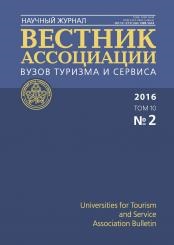The article is devoted to theoretical and practical issues of teaching mathematics in high school. The article analyzes the influence of factors of the social environment on higher education, including the teaching of mathematics. Among all studied subjects higher mathematics is a particular educational discipline, knowledge of mathematics is the basis for the study of many applied sciences. The subject of mathematics as an academic discipline in the University is one of the fundamental subjects of general education. The author examines the necessity of psychological and pedagogical support of the process of adaptation to University and support. The article describes the essence of psychological and pedagogical support of University education. Studying the social environment, the author takes into account the factors which are the result of human interaction and which influence at the same time on the behavior and emotional state of people. The article examines the role of environment, including social environment, and the role of the learning process. The author analyzes some factors of the social environment and describes the specifics of teaching mathematics and the specifics of training for various forms of education: fulltime education and correspondence courses. The article examines acmeological approach to teaching. The article notes that in acmeological understanding the main direction of development is the movement of a person to selfactualization, the fulfillment of inner potential, achievement of new heights, including internal ones. The article reveals the need for ownership of acmeological technologies for teachers engaged in psycho-pedagogical support of learning. The author identifies complex issues that impede learning and the work of the teacher: the low level of initial knowledge of students, insufficient development of students ‘ interest in education, attitudes to education not as to a painstaking, systematic, domestic work, but as to the formal execution of a set of some external, unrelated to the student tasks.
factors of the social environment, psychological and pedagogical support, teaching mathematics at the University, acmeological approach to teaching
1. Anis´kina M.S. Psikhologo-pedagogicheskoe soprovozhdenie obucheniya matematike studentov zaochnogo otdeleniya. Vestnik GUU. Seriya «Pedagogika i psikhologiya», 2013. № 9.
2. Anis´kina M.S. Eticheskie osnovy psikhologo-pedagogicheskogo soprovozhdeniya pri obuchenii v tekhnicheskom vuze. Vestnik GUU. Seriya «Pedagogika i psikhologiya». 2014. № 15.
3. Vayzer G.A., Chudnovskiy V.E. Smysl zhizni i akme: 15 let poiska. M., 2010.
4. Derkach A.A., Zazykin V.G., Akmeologiya. SPb., 2003.
5. Derkach A.A. Ustanovki i printsipy akmeorientirovannoy pedagogiki. Akmeologiya. Nauchno-populyarnyy zhurnal. 2009. № 2.
6. Eliseeva M.V. Povyshenie dostovernosti otsenki kachestva obucheniya budushchego vypusknika vuza na osnove reytingovoy sistemy: pri izuchenii matematiki studentami ekonomicheskikh spetsial´nostey. Dis. … kand. ped. nauk. M., 2009.
7. Kazarenkov V.I. Samoobrazovanie v sisteme podgotovki spetsialistov vysshey shkoly. Vestnik RUDN. Seriya «Psikhologiya i pedagogika». 2012. № 2. S. 106-111.
8. Kazarenkov V.I. Tselostnost´ universitetskoy podgotovki spetsialistov //Vestnik RUDN. Seriya «Psikhologiya i pedagogika». 2009. № 2. S. 73-77.
9. Kulyutkin Yu.N. Tsennostno-smyslovye orientiry sovremennogo obrazovaniya. SPb.: Izd-vo «Spets. lit.», 2002.
10. Miklyaeva A.V., Rumyantseva P.V., Tuzhikova E.S., Tupitsyna I.A. Psikhologicheskoe soprovozhdenie professional´noy deyatel´nosti nachinayushchikh psikhologov. Ch. 1. Kopilka publikatsiy prepodavateley kafedry psikhologii cheloveka RGPU im. A.I. Gertsena, 2 [Elektronnyy resurs] http://humanpsy.ru/collective/prof-soprovod-01 (data obrashcheniya: 01.04.2016).
11. Osukhova N.G. Psikhologicheskoe soprovozhdenie sem´i i lichnosti v krizisnoy situatsii. Shkol´nyy psikholog. 2001. № 31. http://psy.1september.ru/article.php? ID=200103110 (data obrashcheniya: 18.04.2016).
12. Podoshva N.V., Intensifikatsiya samostoyatel´noy raboty studentov vuzov pri obuchenii kursu vysshey matematiki. Dis. … kand. ped. nauk. M., 2012.
13. Selezneva E.V. Tselepolaganie i zhiznennyy put´: akmeologicheskie strategii. Akmeologiya. Nauchno-populyarnyy zhurnal. 2009. № 3.
14. Skudnova T.E. Akmeologicheskiy podkhod v psikhologo-pedagogicheskom obrazovanii. Vestnik Adygeyskogo gosudarstvennogo universiteta. Seriya 3 «Pedagogika i psikhologiya». 2012. № 1.
15. Khavronina S.A. Argumentirovannost´ kak sostavlyayushchaya professionalizma prepodavatelya russkogo yazyka inostrantsam. Materialy konferentsii RUDN «Lichnost´ v mezhkul´turnom prostranstve». M., 2012.
16. Csikszentmihalyi M. The promise of positive psychology. Psychological Topics. 2000. Vol. 18. N2. P. 203-211.
17. Locke E.A. It’s time we brought introspection out of the closet. Perspectives on Psychological Science. 2009. Vol. 4. N1 (Jan). P. 24-35.
18. Metcalfe J., Wiebe D. Intuition in insight and noninsight problem solving. Memory and Cognition. 1987. Vol. 15. N3. P. 238-246. (Aktualizatsiya intuitsii, Vybor vernogo resheniya).
19. Schapkin, S.A. (2004). Adaptation to academic learning: effects of achievement motivation and extraversion. In: M. Wosnitza, A. Frey, R.S. Jaeger (Hrsg.), Lernprozess, Lernumgebung und Lerndiagnostik (ss. 150-155). Landau: Verlag empirische Pädagogik.
20. Westerhouse K. Self- and peer-reported personality: Agreement, train ratability, and the «self-based heuristic». Journal of Research in Personality. 2000. Vol. 34. P. 208-224.





